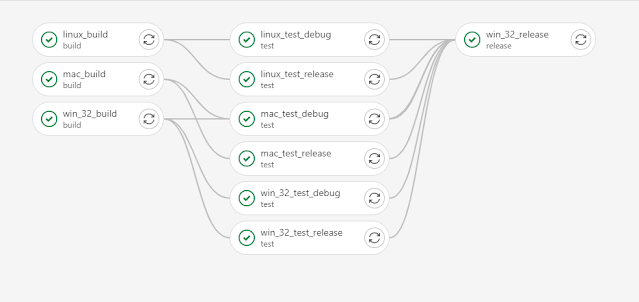After five weeks of work, it’s finally looking like the pipeline refactor is nearly done! I’m currently having a few hiccups in generating and pushing the doxygen documentation, but the pipeline is currently compiling a single header of Gateware from the development repo, running all of our unit tests on it, and pushing that single header to our release repo! The pipeline is also pushing licenses, a readme, and a version.txt file, and will soon be pushing freshly-generated doxygen documentation with an up-to-date version number. Once that’s done, all that’s left is to set up a remote trigger for GCompiler’s pipeline and to call it from the development repo’s pipeline any time a branch is merged into master.
 |
| This is what the GCompiler pipeline looks like. As you can see, it's working! What you can't see is that the documentation isn't quite generating right. Oh well, progress is progress. |
I’m very excited to finish up this task at long last! Once it’s all wrapped up, Gateware developers will never have to worry about the single header generation (or doxygen for that matter) ever again! Well, until someone else comes along and decides they want to improve the pipeline, of course.











.png)